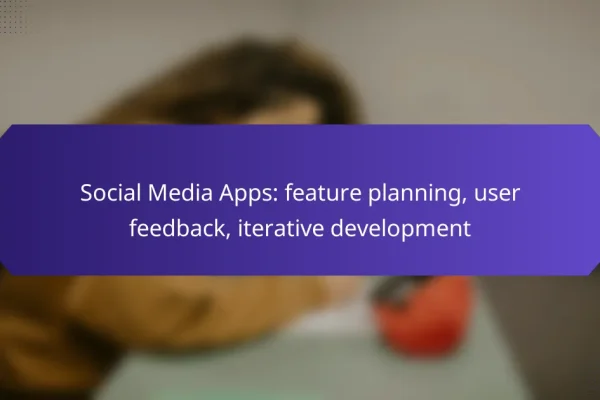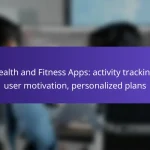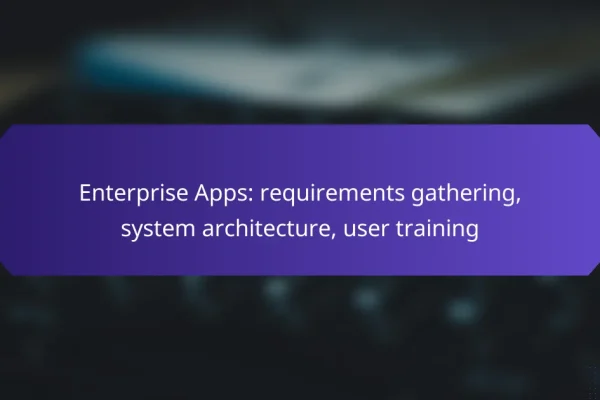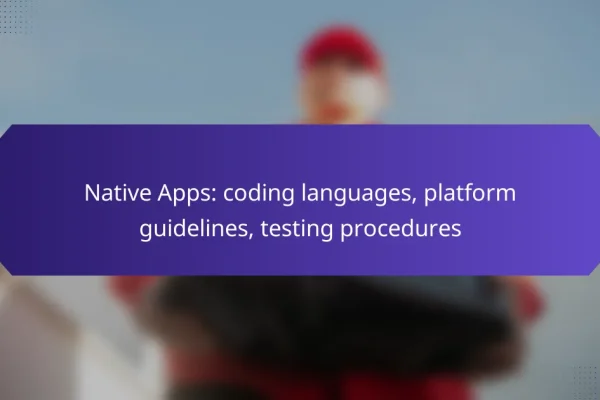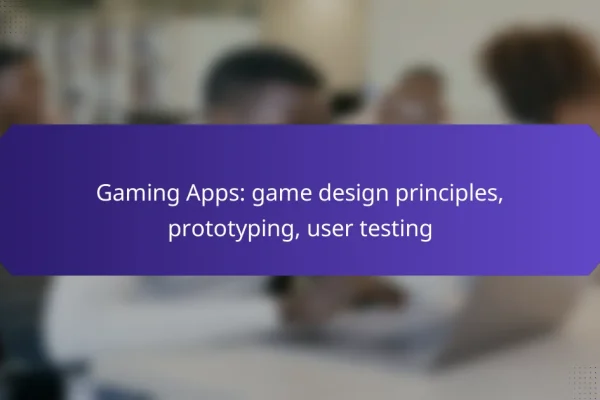What are the types of mobile app development?
Mobile app development can be categorized into three main types: native, hybrid, and web app development. Each type has its own advantages and considerations, affecting factors like performance, user experience, and development time.
Native app development
Native app development involves creating applications specifically for a particular operating system, such as iOS or Android. This approach utilizes platform-specific programming languages like Swift for iOS and Kotlin for Android, resulting in high performance and a seamless user experience.
One of the key benefits of native apps is their ability to access device features such as the camera, GPS, and notifications. However, developing separate apps for each platform can be time-consuming and costly, often requiring a larger budget and more resources.
Hybrid app development
Hybrid app development combines elements of both native and web applications. These apps are built using web technologies like HTML, CSS, and JavaScript, but are wrapped in a native shell, allowing them to be distributed through app stores.
This approach offers a balance between performance and development efficiency, as a single codebase can be used across multiple platforms. However, hybrid apps may not perform as well as native apps in terms of speed and access to device features, which is a trade-off to consider.
Web app development
Web app development focuses on creating applications that run in a web browser, making them accessible on any device with internet connectivity. These apps are built using standard web technologies and are responsive, adapting to different screen sizes.
While web apps are generally easier and quicker to develop, they lack the performance and functionality of native apps. They cannot access device features as seamlessly, which may limit user experience. However, they are cost-effective and ideal for businesses looking to reach a wide audience without investing heavily in multiple platforms.
How does native app development work?
Native app development involves creating applications specifically for a particular platform, such as iOS or Android, using platform-specific programming languages and tools. This approach allows developers to leverage the full capabilities of the device, resulting in high performance and a seamless user experience.
Platform-specific coding
Native app development requires coding in languages tailored to the target platform. For iOS, developers typically use Swift or Objective-C, while Android apps are usually built with Java or Kotlin. This platform-specific coding ensures that the app can fully utilize the unique features and functionalities of each operating system.
Choosing the right programming language is crucial for performance and maintainability. Familiarity with the platform’s ecosystem can significantly reduce development time and improve the quality of the final product. Developers should also consider the availability of libraries and frameworks that can expedite the coding process.
Access to device features
Native apps have direct access to device features such as the camera, GPS, and sensors, which enhances functionality and user engagement. This access allows developers to create rich, interactive experiences that can take full advantage of the hardware capabilities.
However, leveraging these features requires careful consideration of user privacy and permissions. Developers must ensure that they request only the necessary permissions and clearly communicate their purpose to users. This practice helps maintain user trust and complies with platform guidelines.
What are the benefits of hybrid app development?
Hybrid app development combines the advantages of both native and web applications, allowing for a more versatile approach. This method enables developers to create apps that work across multiple platforms, reducing costs and time while maintaining a good user experience.
Cross-platform compatibility
One of the main benefits of hybrid app development is its cross-platform compatibility. Developers can write code once and deploy it on various operating systems like iOS and Android, which significantly reduces development time and resources. This means businesses can reach a wider audience without the need for separate codebases.
However, it’s essential to consider that while hybrid apps can function on multiple platforms, they may not always deliver the same performance or user experience as native apps. Testing on each platform is crucial to ensure that the app meets user expectations.
Faster development time
Hybrid app development typically results in faster development times compared to native app development. Since much of the code is reusable across platforms, developers can focus on building features rather than duplicating efforts. This can lead to a quicker time-to-market, which is vital for businesses looking to capitalize on trends.
To maximize efficiency, teams should adopt agile methodologies and use frameworks that support rapid prototyping. However, it’s important to balance speed with quality; rushing the development process can lead to bugs and a subpar user experience. Regular testing and feedback loops can help maintain quality while speeding up the overall timeline.
What tools are used for mobile app development in the UK?
In the UK, popular tools for mobile app development include frameworks and platforms that streamline the process, enhance performance, and support cross-platform compatibility. Key options include React Native, Flutter, and Xamarin, each offering unique features and benefits tailored to different project needs.
React Native
React Native is a widely-used framework developed by Facebook that allows developers to create mobile applications using JavaScript and React. It enables the building of apps for both iOS and Android from a single codebase, which can significantly reduce development time and costs.
When using React Native, developers can leverage native components, resulting in a more responsive and smoother user experience. However, it is essential to consider the learning curve for those unfamiliar with JavaScript or React, as well as potential performance issues for highly complex applications.
Flutter
Flutter, created by Google, is another popular framework that uses the Dart programming language to build natively compiled applications for mobile, web, and desktop from a single codebase. Its rich set of pre-designed widgets allows for highly customizable user interfaces, making it an attractive option for developers aiming for visually appealing apps.
One of Flutter’s advantages is its hot reload feature, which enables developers to see changes in real-time without restarting the app. However, developers should be mindful of the relatively smaller community and fewer libraries compared to more established frameworks like React Native.
Xamarin
Xamarin is a Microsoft-owned framework that allows developers to build cross-platform apps using C#. It integrates well with the .NET ecosystem, making it a suitable choice for developers already familiar with Microsoft technologies. Xamarin provides access to native APIs, ensuring that apps perform well on both iOS and Android.
While Xamarin offers a robust solution for enterprise-level applications, it may lead to larger app sizes and longer build times. Developers should weigh these factors against the benefits of using a single language across platforms, especially when considering long-term maintenance and scalability.
How to choose the right mobile app development type?
Choosing the right mobile app development type involves understanding your project’s specific needs and the target audience. This decision will impact the app’s functionality, user experience, and overall success.
Assess project requirements
Begin by outlining the core functionalities your app must have. Consider whether you need features like real-time data processing, offline capabilities, or integration with other services. This assessment will help determine if you should opt for native, hybrid, or web app development.
Next, evaluate your budget and timeline. Native apps generally require more resources and time due to their platform-specific nature, while hybrid and web apps can be quicker and more cost-effective to develop. Make a list of must-have features versus nice-to-have ones to prioritize effectively.
Evaluate target audience
Understanding your target audience is crucial for selecting the appropriate mobile app development type. Research demographic factors such as age, location, and device preferences to tailor your app accordingly. For instance, if your audience primarily uses iOS devices, a native iOS app might be the best choice.
Consider user behavior and expectations as well. If your audience values performance and a seamless experience, a native app may be preferable. However, if they prioritize accessibility across multiple devices, a hybrid or web app could serve better. Gathering user feedback early in the process can provide valuable insights for this evaluation.
What are the costs associated with mobile app development?
The costs of mobile app development can vary significantly based on several factors, including the complexity of the app, the development team, and the platform. Generally, businesses can expect to invest anywhere from a few thousand to several hundred thousand dollars in their mobile app projects.
Development team rates
Development team rates are a crucial component of mobile app development costs. These rates can differ based on the team’s location, expertise, and the technology stack used. For instance, hourly rates for developers can range from $25 to $150 or more, depending on whether they are based in regions like Eastern Europe, North America, or Asia.
When selecting a development team, consider both the cost and the quality of work. A lower rate may seem appealing, but it could lead to higher costs in the long run if the quality is subpar. It’s often beneficial to balance cost with experience and portfolio strength.
To make an informed decision, compare rates from multiple teams and assess their previous projects. Look for teams that provide transparent pricing and detailed project estimates to avoid unexpected expenses later on.
